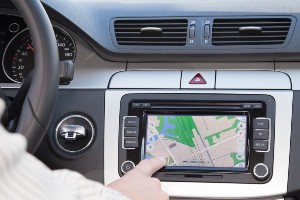Driving Safely as You Age

For many older adults, the ability to drive represents independence. However, as you age, you may notice physical changes that affect your driving, such as slowed reflexes, vision or hearing loss, and decreased mobility. While many can drive safely well into their 80s and beyond, others may struggle. Understanding how aging can impact your driving ability—and taking proactive measures—can help ensure safety on the road.
How aging affects you and your driving
- Limited mobility due to arthritis. Arthritis is common among older adults. Joints can stiffen, and muscles can weaken. This can make it harder to turn your head, brake safely, or maneuver the steering wheel.
- Vision impairments. Your eyes are aging with you. That can lead to problems such as reduced peripheral vision, difficulty seeing in low light, and trouble reading traffic signs, all of which can create dangerous situations.
- Hearing loss. Your hearing can be affected as you age, making it harder to notice sirens, horns, or other audio cues that signal danger.
- Slower reflexes. A decline in reaction time can make responding to sudden road hazards more challenging.
Questions? Call us at (877) 284-6600.
Safety Tips for Aging Drivers
To maintain safe driving habits, aging adults should:
 Know your medications. Some medications can make you drowsy, less alert, or affect your reaction time; others tell you specifically not to drive while taking them. Always check warning labels before driving.
Know your medications. Some medications can make you drowsy, less alert, or affect your reaction time; others tell you specifically not to drive while taking them. Always check warning labels before driving.- Stay physically active. This can help improve your strength and flexibility, making it easier to turn the steering wheel, change lanes, or perform other movements while driving.
- Schedule regular hearing and vision tests. Maintaining optimal sensory awareness is crucial for safe driving.
- Drive in safe conditions. Drive when the roads are in good condition – daytime, good weather, quiet roads, familiar areas, safe routes, and calm traffic.
- Consider new vehicle technologies. Technology may help reduce crashes; however, while advanced driver-assistance systems can help, they may also be distracting. Test them to ensure they enhance—not hinder—your driving ability.
New vehicle technologies can improve driver safety and confidence
- Forward collision warning. Alerts you if you are about to have a crash.
 Automatic crash notification. Automatically contacts emergency services after an accident without anyone having to call 911
Automatic crash notification. Automatically contacts emergency services after an accident without anyone having to call 911- Parking assist with rear-view display. Provides a clear backup camera view and obstacle detection warnings
- Self-parking systems. Allow hands-free parallel parking with automated steering
- Navigation assistance is a turn-by-turn GPS
Recognizing When It Is Time to Stop Driving
It can be hard for an older driver to recognize that he or she is no longer a safe driver. Understand their limitations and make the necessary adjustments. Help them recognize the signs and understand new vehicle technology and alternative transportation options.
Signs that it may be time to stop driving
- Health issues that might affect driving ability, including problems with vision, hearing, and/or movement.
- Frequent near misses, multiple accidents, and/or new dents in the car.
- Increases in car insurance premiums because of driving issues.
- Increasing anxiety about driving at night
- A doctor’s recommendation to modify driving habits or quit driving entirely
Alternative Transportation Options
- Ride-sharing services: Apps like Uber and Lyft offer convenient and affordable options.
- Public Transportation: Buses, trains, and senior-specific transit programs can be reliable.
- Community Shuttles: Many towns offer free or low-cost shuttles for seniors.
- Walking or Biking: These options promote physical activity and independence for those living in walkable communities.
Resources for you:
Assistive technologies, such as a GPS, can make older drivers feel safer and more confident when driving.
Do You Need Legal Assistance?
If you or a loved one has been seriously injured in a motor vehicle accident, a slip and fall, or some other accident in which you suffered serious injuries due to another’s negligence, contact Nash & Franciskato at (877) 284-6600. We have a successful track record of helping accident victims collect the compensation they deserve.
One of our experienced staff members will speak with you personally and will provide you with a free, no-obligation review of your case.
SCHEDULE A FREE REVIEW OF YOUR CASE
RESOURCES FOR YOU
Would you like to receive news and blog updates regularly? Sign up to receive our email newsletter. Your email address will only be used to send you our newsletter and respond to inquiries.
SIGN UP FOR THE NEWSLETTER
Past results afford no guarantee of future results, and each case is different and is judged on its own merits. The choice of a lawyer is an important decision and should not be based solely upon advertisements.
Editor’s Note: This post was originally published June 21, 2021. It was updated on May 16, 2023, and May 10, 2025, and re-published.
Photo Credits:
Related

 Know your medications. Some medications can make you drowsy, less alert, or affect your reaction time; others tell you specifically not to drive while taking them. Always check warning labels before driving.
Know your medications. Some medications can make you drowsy, less alert, or affect your reaction time; others tell you specifically not to drive while taking them. Always check warning labels before driving. Automatic crash notification. Automatically contacts emergency services after an accident without anyone having to call 911
Automatic crash notification. Automatically contacts emergency services after an accident without anyone having to call 911